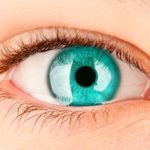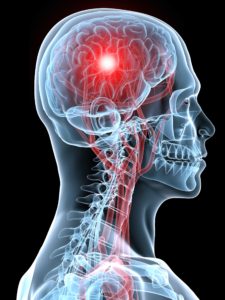
At Conestoga Eye we understand that a concussion often causes significant visual problems. As importantly, we can help you in the rehabilitation process. Our concussion center is led by David Silbert MD, FAAP, who has specialty training in the treatment of eye trauma and orbital fractures. Our office works to co-manage your concussion treatment as outlined by your primary care physician where your ocular health is affected.
What is a concussion?
A concussion is a traumatic brain injury that alters the way your brain functions. A hit to your head or upper body can cause your brain to slide back and forth, hitting the inner walls of your skull. In severe cases this can even cause bleeding in your brain. Concussions are most common in contact sports (such as football or boxing).
Athletes and concussions
No athlete should return to vigorous activity while signs or symptoms of a concussion are present. Experts recommend that an athlete with a suspected concussion not return to play until he or she has been medically evaluated by a health care professional trained in evaluating and managing concussions. Children and adolescents should be evaluated by a health care professional trained in evaluating and managing pediatric concussions.
Experts also recommend that adult, child, and adolescent athletes with a concussion not return to play on the same day as the injury.
What can be done for visual symptoms of a concussion?
A baseline eye exam is always recommended for children or adults having visual symptoms following a hit to the head (such as double vision, difficulty reading, blurry vision). Often symptoms will go away on their own without treatment. If symptoms persist, different treatments can be used, including glasses or eye exercises.
What are the symptoms of a concussion?
Symptoms of a concussion may be noticed immediately, or might be delayed by hours or even days. Symptoms can include:
• Nausea and/or vomiting
• Slurred speech
• Delayed responses to questions
• Appearing dazed to other people
• Fatigue
• Personality changes
• Sensitivity to light and noise
• Difficulty sleeping
• Irritability and crankiness
• Amnesia around the time of the traumatic event
• Headaches or a feeling of pressure in the head
• Problems with concentration
• Decreased memory
• Difficult with balance and coordination
• Double vision
• Difficulty focusing (especially at near)
• Confusion or feeling like you are in a fog
• Dizziness
• Loss of consciousness
When should I see a doctor if I think I have had a concussion?
You should be seen by your primary care physician within 1-2 days of experiencing a head injury. The American Academy of Pediatrics recommends that you call your child’s doctor for advice if your child receives anything more than a light bump on the head.
Seek emergency care if you experience any of these symptoms:
• Repeated vomiting
• Loss of consciousness lasting longer than 30 seconds
• A headache that gets worse over time
• Changes in behavior, such as irritability
• Changes in physical coordination (such as stumbling or clumsiness)
• Confusion or disorientation (such as di culty recognizing people or places)
• Slurred speech
• Seizures
• Lasting or recurrent dizziness
• Obvious difficulty with mental function or physical coordination
• Symptoms that worsen over time
• Large head bump or bruise on area other than the forehead in children, especially in infants under 12 months of old

